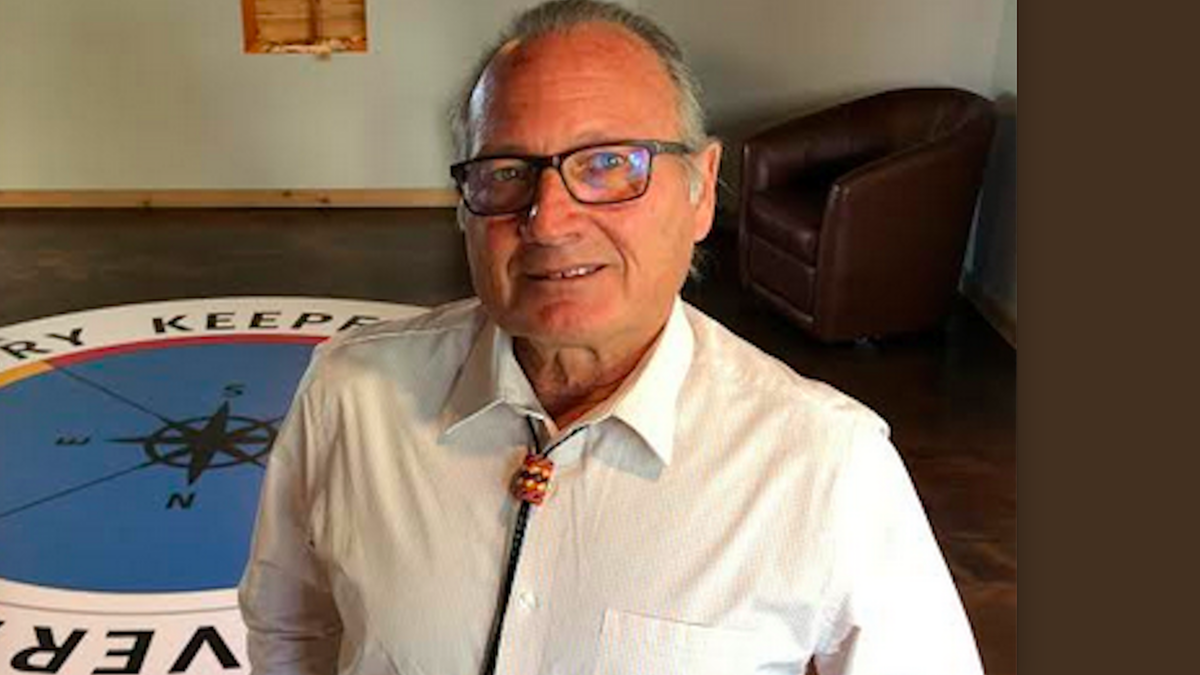Dr. J. Neil Henderson is a research doctor who works in medical anthropology, studying the effects of culture on health. He is also the executive director of Memory Keepers, part of the University of Minnesota Medical School-Duluth Campus which focuses on dementia in American Indians and rural people.
Memory Keepers hopes to gain an understanding of dementia and its connection to diabetes and other diseases, so they can improve the lives of Indigenous through treatment and care delivery.
Listening
American Indian values are at the center of Henderson’s work. As he reaches out to the Indigenous community, he shows respect for the harmony individuals have with their tribe, the land, and the spirit of the universe. When he works with a family, he pays careful attention to their viewpoints.
“There are huge variations in the way people understand dementia,” he says. “Many Indigenous people describe dementia differently.” Henderson tells the story of a Choctaw granddaughter he interviewed several years ago. “She didn’t see her grandmother’s Alzheimers' disease as a tragedy.” Instead she viewed it as part of a timeless cycle of families existing in nature.
When the woman’s grandmother stood at the window and “saw” her mother and father riding horses a few feet from the house, the granddaughter didn’t call it a hallucination. She said, “My grandmother can see things we don’t see.” The granddaughter described moments when her grandmother talked to people on “the other side.” It seemed to her like a one-way conversation, as if the grandmother was talking on a phone.
Henderson says that being aware of the different responses and interpretations within the American Indian community will greatly benefit dementia research.
Reaching Out
Henderson understands the fear some Native people have of nursing homes. “So many remember the boarding schools,” he says. During the 19th and early 20th century, families were often forced to send their children to these schools, where they were subjected to cruelty and forbidden to speak their Native languages.
He cites other institutions such as nursing homes and memory care facilities that take people far away from the timeless cycle of family living and home. “There is some distrust of people from the outside coming into a community with offers to help. The distrust is understandable.”
Building trust has taken Henderson on the road. For over three and a half years, he has traveled to many Upper Midwest tribes. While his concern is primarily in Minnesota, he ventures into North Dakota and Wisconsin, getting to know tribes and listening to their needs.
He says, “There is wisdom I need to hear.” Henderson lists a few of the communities he has visited, “Madison, the Oneida in Green Bay, Grand Portage, Fond du Lac, Red Lake, and Anishinaabe tribes north of us in Canada.” He has also spent time with the the Chickasaw Nation in Oklahoma.
Memory Keepers Goals
Henderson’s full title is executive director of the Memory Keepers Medical Discovery Team on American Indian and Rural Health Disparities. The group works to advance research and care surrounding critical issues that affect Minnesota.
Born an Oklahoma Choctaw, Henderson’s focus is on building healthier lives in culturally diverse populations, especially as it relates to dementia and diabetes.
“Diabetes increases the risk for Alzheimer’s disease and other dementias,” Henderson says. He is paying attention to other risk factors, such as vascular health and toxins in the brain. “In Indian country, the amount of diabetes is almost three times that found in the majority population,” Henderson says.
The work is urgent. The overall number of people living with dementia is increasing, because, as Henderson says, “Native people, and others, are living longer than they ever have before.”
The University of Minnesota Medical School, Duluth Campus is in the right place to take on the challenge of rural and American Indian health equity research. They have the highest American Indian faculty/staff to student ratio of any campus in the U.S.
University of Minnesota Duluth partners with them to host a wide range of innovative, nationally prominent programs such as American Indian Studies, American Indian education, tribal governance, and tribal environmental resources.
The physical space for the Memory Keepers facility pays tribute to American Indian culture. The work began in 2017 when state budget surplus funds were used to transform a former auto repair garage into meeting and office space.
The floor in the facility entryway aligns visitors. A medicine wheel, superimposed by a compass, indicates north, south, east and west. “It keeps us aware of the four directions, which is an important concept in American Indian spiritual teachings,” Henderson says. Windows provide a view of Lake Superior and a fire burns in a raised fireplace. “Water and fire are constant reminders of our traditional ways.”
Next Steps
Memory Keepers has received funding from a number of sources in the past few years, including the National Institute on Aging (NIA). The first NIA research project, which was awarded to Dr. Kristen Jacklin, associate director of Memory Keepers, began in early 2019. There is funding in place to recruit top researchers from around the country to investigate health equity in tribal and rural communities and the quest for additional funding is ongoing.
Henderson keeps his eyes on improving lives for American Indian people, and that includes empirical research. He is looking at all the medical studies about conditions that impact dementia. He doesn’t stop there.
“We need to look at every factor from cultural beliefs, to the physical environment, to grocery store choices. We clearly see correlations between income and access to care. All of these issues are connected to producing disease,” Henderson says.
Henderson and the Memory Keepers group are united in creating healthy aging for American Indians.
About the University of Minnesota Medical School, Duluth Campus
